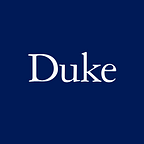A Blue Georgia on my Mind
By Faulkner Fox
I didn’t see footage of the siege until 9 p.m. that night. My mother had texted me earlier: “Watching the storming of the Capitol?” “Driving,” I texted back. “Glad you’re coming home. DC is really scary,” she replied. But I wasn’t coming home — not yet. My husband and I were driving west from Savannah, not sure yet where we were headed.
I was in Georgia with a Durham, North Carolina get-out-the-vote group, Bull City Votes. About 50 of us arrived in Savannah on November 29, invited by local organizers to help register voters. Many of us came back to Georgia for Early Vote, Election Day, and the days after. On January 6, a lot of us were driving through the state to cure ballots — help people fix problems so their votes would count. The Senate Runoff Election was over, but we still had until January 8th to cure ballots.
As my husband and I left Savannah on January 6, it was hard to comprehend what was happening. Everybody and their mother was calling me, but I’m a bad driver so I didn’t answer. My husband tried to nap. We’d been up most of the night, watching the Georgia election returns.
The day before — Election Day — was a full press from long before dawn until the polls closed. When we joined part of our team in the pitch black outside a hotel on the highway, we were eight people among thousands on the ground. Canvassers from all over the country — many of us volunteers — were in Georgia, working alongside local organizers. For those of us from out of state, it felt like a pilgrimage.
The people who stormed the Capitol the next day seemed to think they were on a pilgrimage, too. I heard them shout words I’ve shouted from inside government buildings: “Whose house? Our house! Whose house? The people’s house!” What, exactly, separated us — other than entirely different views of reality? A belief in democracy is one obvious answer.
Getting out the vote is aggressive, at least the way we do it. We hustle. We are relentless. We try to persuade people to vote. And yet we also respect that if people say voting doesn’t matter, believe nothing will ever change in this messed-up country, they have good reason to feel that way. I told a man I ultimately couldn’t convince to vote: “I’m not going to lie to you. Voting is a small piece of creating justice. But it is a piece — at least that’s what I think.”
If the past four years have taught us anything, it might be that democracy must be upheld. It won’t just keep chugging on its own. And no one can hold it up by herself. Thank God no one has to.
Some people say these Georgia victories are Stacey Abrams’ doing. Yes and no, it seems to me. Our group arrived in late November believing that Georgia went blue in the presidential election due largely to the leadership of five Black women organizers, Stacey Abrams being the most well-known. We had the honor of being trained, before we left Durham, by two of the others.
What do these most recent Georgia victories mean? To me, they mean that the South, a place with a hideous history of injustice and brutality, is capable of change. That people who care about justice and are willing to work hard can bring about change.
I spent January 7 ballot curing in Columbia County, outside Augusta. The energy of curing is very different from that of GOTV. It’s calm. It felt like the best possible thing to do the day after the siege. I went from house to house, letting people know that something small was wrong with their ballot, and their vote wouldn’t count unless they addressed the problem. And there I was, at their doorstep, with exact instructions on what they needed to do. It seemed like the opposite of breaking glass and forcing one’s way into a government building. It was restorative, even in a pandemic. (You don’t go inside, you always wear a mask.)
We knew all along that COVID-19 wasn’t the only challenge we’d face in Georgia. We’re a multi-racial team from North Carolina. The Proud Boys and the KKK have never been theoretical to us. We came to help ensure that everyone who was eligible and wanted to vote got safely to the polls. And that their ballots counted. Others in the state, and around the country, wanted to stop Black and brown people from voting. Nothing new there. Except in 2020 and early 2021, the President of the United States was one of them, egging the rest on.
On Election Day itself (January 5), groups like the Proud Boys were busy caravanning to D.C. If they hadn’t been en route to the Capitol, I figure they would have been in Georgia, trying to disrupt the vote.
On December 14, the first day of Early Vote, a Black member of our team called me from Savannah. (I was back in Durham.) “Tell everybody!” he said. “Show them the footage I just texted you. The police are helping us.” The Proud Boys were expected in Savannah so the police provided escort to canvassers and voters all day long. “Tell everybody,” he repeated. “I never thought I’d see this. Never in my life.”
As I ballot-cured alone on January 7, driving through small towns and suburbs in Columbia County, I felt fine. Better than fine. I was so fond of Georgia, amazed by what it had just accomplished. Plus some of the angriest, most anti-democratic Americans were probably still on the road. They hadn’t been arrested (yet), but they weren’t in Georgia. Blue Georgia was a calm and beautiful refuge — at least that day.
Faulkner Fox is a voting rights activist and writer who teaches in the English Department at Duke University.
